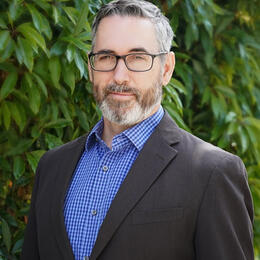Given the research showing the potentially devastating effects of climate change on California birds, the 2015 California legislative session offered a great deal of hope, as well as a real opportunity for Audubon California and its supporters to get involved in decisions that mattered. Thousands upon thousands of bird enthusiasts spoke out demanding action on climate change -- and that was truly inspiring. While we didn't get every bill passed that birds need, we built a lot of momentum that we can take into next year's session.
The legislative climate proposals introduced this session were ambitious. Lawmakers sought to substantially reduce our use of petroleum, expand our use of alternative energy, increase energy conservation measures, close the last remaining loopholes allowing offshore oil drilling, set up a special council to coordinate the state’s climate adaptation, make it state policy to protect wildlife corridors, and a lot more.
The flagship bills of the 2015 legislative season were SB 32 and SB 350, which would have expanded California’s already progressive climate laws and set ambitious goals to reduce our reliance on polluting fuels. Not surprising, these bills faced staunch opposition from the oil industry, resulting in SB 32 being held back for further work in the 2016 season, and removing the requirement to reduce fuels from SB 350.
Make no mistake, while these were both setbacks, they weren’t defeats. Senator Fran Pavley, the author of California’s landmark climate legislation in 2006 (AB 32), and the author of SB 32 this year, reminded supporters that it took two years to pass AB 32. Moreover, at a joint press appearance, SB 350’s author Senate Pro Tem Kevin de León, Assembly Speaker Toni Atkins, and Governor Jerry Brown committed to redoubling efforts to reduce California’s reliance on polluting fossil fuels either with new legislation or through executive actions. And let's not forget that other areas of SB 350 -- the sections calling for 50% of California's energy to come from renewables by 2030 and increases in clean energy building -- remained intact, and are heading to the governor for his signature (UPDATE -- Gov. Brown signed SB 350 in law).
Another setback was Senate Bill 788, which would have closed one of the last remaining loopholes that could allow new offshore oil drilling leases in California waters. Time and time again, Californians have expressed their desire to halt any new offshore drilling, and the fact that this bill couldn’t get passed even after an oil spill in Santa Barbara is discouraging. Yet the Legislature did approve two bills that will greatly improve oil pipeline safety and the state’s ability to effectively respond to oil spills. We’re making progress in this area, and Audubon California will continue to push until birds are free from the threat of oil spills.
Audubon California was greatly pleased that two bills that move the state forward on climate change adaptation were sent to the Governor’s desk. Assembly Bill 498, which we co-sponsored, will make it state policy to protect wildlife corridors that birds and other wildlife will need to survive in a changed environment. Already, we are seeing an increased awareness of the importance of wildlife corridors among legislators and agency personnel, including a new provision to use transportation funds to protect and create wildlife corridors adjacent to highway projects. Assembly Bill 1482, which we also co-sponsored, will greatly improve the coordination of and accountability for climate adaptation efforts across all state agencies.
Another great achievement of this session was the unprecedented involvement of the larger Audubon network of chapters and members who met with their local lawmakers, made phone calls, and sent countless letters and emails to raise awareness about the importance of the climate legislation to birds and nature. The value of this local activism never diminishes, and I fully expect to see it reach new heights as lawmakers revisit these issues again next year.
Mike Lynes is Audubon California's Director of Public Policy.

By Mike Lynes
Your Guide to Climate Action
Here’s where to begin and how to amplify your efforts to make lasting change in the world.




